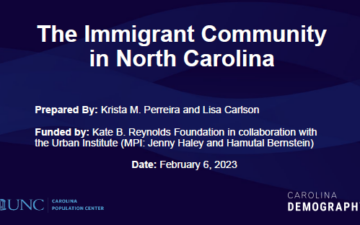On March 24th, Governor Cooper directed $51.4 million in new funding to help students access and complete postsecondary education as the state recovers from the repercussions of the COVID-19 pandemic. The funding is drawn from North Carolina’s share of the Governor’s Emergency Education Relief (GEER) fund, which are federal funds appropriated to assist educational institutions, from school districts, postsecondary institutions, and other education opportunities to reduce the detrimental impact from COVID-19. North Carolina will invest:
As part of the $44 million to help students access college and earn degrees, Governor Cooper has announced the creation of a new $31.5M Longleaf Commitment Grant, which will provide tuition assistance to high school seniors from low- and middle-income families who choose to attend one of North Carolina’s 58 Community Colleges.
Specifically, eligible high school students who graduate in 2021 and choose to attend an NC community college during the 2021-2022 school year will receive a minimum grant of $700 to $2,800 per year for two years. Award amounts will vary based on the number of credits in which a student is enrolled. The grant will end after the Spring 2023 semester.
We recommend starting with the College Foundation of North Carolina (CFNC), which has posted details regarding eligibility, award amount information, residency requirements, as well as links to completing FAFSA and the CFNC Application Hub. Specifically, the Application Hub is designed to help students apply for college, access transcripts, and monitor the application process. Most information on the specifics of the Longleaf Commitment Grant can be found on the CFNC website, linked above.
Carolina Demography, in partnership with myFutureNC, created an NC First in FAFSA Tracker that launched in January 2021. Completing the FAFSA is one of the eligibility requirements for the Longleaf Commitment Grant.
This dashboard allows users to see the current percentage of high school students who have completed the FAFSA across the state. The tracker is updated weekly and can help school and community leadership determine where students are in completions in comparison to peer schools. Identifying schools with similar characteristics with higher FAFSA completion rates can help local leaders identify potential opportunities to learn about outreach strategies and tactics that may be effective at increasing FAFSA completions in their schools. Using the track also provides information on where to target efforts on FAFSA completions, again one of the eligibility requirements for the Longleaf Commitment Grant.
We are beginning to understand how COVID-19 closures created disruptions to secondary and postsecondary education. We will be looking to see if the Longleaf Commitment Grants boost enrollment and degree compeletion at North Carolina’s community colleges in the coming year. If you have questions or other thoughts, please contact us at demography@unc.edu
Need help understanding population change and its impacts on your community or business? Carolina Demography offers demographic research tailored to your needs.
Contact us today for a free initial consultation.
Contact UsCategories: Education

The Center for Women’s Health Research (CWHR) at the University of North Carolina School of Medicine released the 12th edition of our North Carolina Women’s Health Report Card on May 9, 2022. This document is a progress report on the…

Dr. Krista Perreira is a health economist who studies disparities in health, education, and economic well-being. In collaboration with the Urban Institute, she recently co-led a study funded by the Kate B. Reynolds Foundation to study barriers to access to…

Our material helped the NC Local News Lab Fund better understand and then prioritize their funding to better serve existing and future grant recipients in North Carolina. The North Carolina Local News Lab Fund was established in 2017 to strengthen…
Your support is critical to our mission of measuring, understanding, and predicting population change and its impact. Donate to Carolina Demography today.